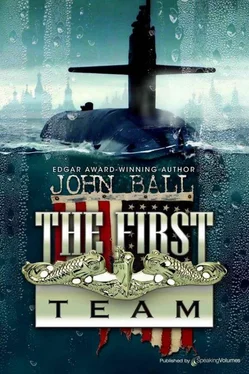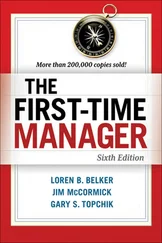Джон Болл - The First Team
Здесь есть возможность читать онлайн «Джон Болл - The First Team» весь текст электронной книги совершенно бесплатно (целиком полную версию без сокращений). В некоторых случаях можно слушать аудио, скачать через торрент в формате fb2 и присутствует краткое содержание. Год выпуска: 2013, Жанр: Триллер, на английском языке. Описание произведения, (предисловие) а так же отзывы посетителей доступны на портале библиотеки ЛибКат.
- Название:The First Team
- Автор:
- Жанр:
- Год:2013
- ISBN:нет данных
- Рейтинг книги:5 / 5. Голосов: 1
-
Избранное:Добавить в избранное
- Отзывы:
-
Ваша оценка:
- 100
- 1
- 2
- 3
- 4
- 5
The First Team: краткое содержание, описание и аннотация
Предлагаем к чтению аннотацию, описание, краткое содержание или предисловие (зависит от того, что написал сам автор книги «The First Team»). Если вы не нашли необходимую информацию о книге — напишите в комментариях, мы постараемся отыскать её.
Student protesters are being slaughtered in the Midwest.
The Jewish pogroms have begun.
You are now living in Soviet — occupied America!
One nuclear submarine and a handful of determined patriots against the combined might of Russia and Soviet-occupied America… The Most Explosive and Gripping “What If” Novel of Our Time!
First published January 1971
The First Team — читать онлайн бесплатно полную книгу (весь текст) целиком
Ниже представлен текст книги, разбитый по страницам. Система сохранения места последней прочитанной страницы, позволяет с удобством читать онлайн бесплатно книгу «The First Team», без необходимости каждый раз заново искать на чём Вы остановились. Поставьте закладку, и сможете в любой момент перейти на страницу, на которой закончили чтение.
Интервал:
Закладка:
There was one possible advantage to such a position — he would to some degree at least know what was going on and if Bob Landers got something started, his position could be a useful one. He did not expect Landers to work any miracles, but he was a highly resourceful man. If there were enough more like him, and if they did have resources hidden away, there was always the possibility that something could be done.
He was interrupted when a newspaper was shoved under his door. It was thin and, Hewlitt decided, frightened. Probably the editors should have been praised for getting out anything at all; it was hardly a time to be taking a position on public issues, or even to be distributing factual information which the new masters of the country would prefer not to have broadcast. The front page was a curious mixture of “safe” news items and an obvious, massive restraint. Traffic accidents received a half column. The weather report was expanded to several times its normal size. One cautious, careful item did state that a steady inflow of air traffic “from overseas” had been landing at the principal Washington airports. But there was no indication whatever of the pay loads that had been carried.
Quickly Hewlitt leafed through the paper to check on certain specific things. The editorial page was missing entirely and there was no reference to its absence. The sports page was relatively normal; some big-league games had been played and the scores and team standings were reported as always.
The financial section had been reduced to a half page with the remainder of the space occupied by contract ads which had been booked some time ago. The lead item announced, in cautiously controlled language, that the directors of the New York and American stock exchanges had decided to close their floors for an indefinite period. Almost as a gesture of defiance the final prices of a selected few stocks were given; General Motors headed the list at 18 %.
The rest of the financial news was skimpy and had an aura of the unreal. A few belated reports of earnings during the last quarter were published dutifully in the usual place. The only other major item was a fairly lengthy follow-up story on the collapse of Polar Aircraft from a high of 167 toward a bottom which had not been found. When trading had stopped it had stood at 22 and there had been no buyers. In an insert box it was reported that Seymour Brown, the industrialist who controlled Polar, was still in Washington where he had been summoned to testify before the military preparedness subcommittee. The hearings were not now expected to take place.
From what Hewlitt knew, that was just as well. It would have probably ended up as a far juicier and more revealing fracas than the Bobby Baker scandal had been. Now Brown would get off, as he would have anyway.
Boxed prominently on page three was the official statement that had been on the radio throughout the day. It was harsh, unyielding, and totally specific. In essence it said, “Do what you’re told and nothing else. Stay in line or take the consequences.” The type was strong and bold, a hard border set it off. But, Hewlitt noted, it was on page three. It belonged on page one. Perhaps that was a little bit of defiance on the part of the editor too; he had run it, he had run it prominently, but the front page of his paper was his to control and no one else’s.
By the time he had finished reading, Hewlitt was beginning to feel hunger. He had no real desire for any of the things he had stocked on his shelves or in his refrigerator; he wanted to go out, to have at least that much freedom of movement while he could enjoy it. A steak, he decided, would be inappropriate; he didn’t want one. Then he remembered a small Chinese place where he ate occasionally. It was only four blocks away and he decided to walk.
When he pushed open the door the restaurant was still relatively empty, as he had hoped it would be. He could not remember ever having been there when the place had been even moderately full. How it managed to stay open he did not know, unless it was the late hours and the many bowls of noodles that it served long after other cafes were dark and still. He chose a booth where he liked to sit simply because of the framed needle painting that decorated it. Something about the scene and the colors used touched him; he always felt better when he could sit and look at it.
When a waiter shuffled up with a pot of tea and a glass of water, Hewlitt ordered without looking at the menu. Then he simply sat there, one hand closed into a fist, the other wrapped around it. Presently a bowl of hot soup was set in front of him. He picked up the porcelain spoon and felt the pleasant sensation as the hot liquid ran down his throat. He finished it all and then looked at the several well-filled bowls which had been placed on the table. He ate a full plateful of food and then helped himself to more, washing it all down with cup after small cup of hot tea.
When he had finished he picked up the check and took his time walking toward the front where the cash register was next to a modest display of packaged teas, fortune cookies tied up in small bundles, and boxes of almond cakes. He paid for his dinner with a sense of gratitude for the fact that the restaurant was an island, apparently immune to the events which went on outside its door.
“You haven’t been in for a while.”
Hewlitt looked up and recognized the man who had just taken his money. He was a young Chinese dressed in a severely plain dark suit and a simple black tie.
“No, I guess not.” He wasn’t sure what he was supposed to say.
Although no one was close by and the nearer tables were all empty, the Chinese dropped his voice until he was barely audible. “I have the impression that you work in the White House.”
The alarm bell rang, silently but sharply, in Hewlitt’s mind. He thought very rapidly before he answered. “At present I do.” That committed him to nothing and supplied only public information.
“Let us know if we can help,” the Chinese said. “We’re Americans too, you know.” His face gave no hint of the words he had just spoken.
When Hewlitt arrived at the West Wing Entrance the following morning, the familiar security people were still on hand, but there were now also others. Their clothes, and the set of their faces, betrayed them immediately for who and what they were. They were taking over, and there was no room for the least doubt. The one who looked at Hewlitt’s credentials was surrounded by an almost visible cloud of hostility. His narrow eyes were hard and cold, he was a machine that had somehow mistakenly been born a human being and who was determined to correct that error. Hewlitt maintained a stony silence until he was waved through with a minimum gesture. He had been allowed in, but it was made clear that the license he had been given did not extend beyond that bare fact.
He went to his office soberly, wondering what the day would bring — trying to anticipate and then having to admit to himself that he could not do so. The appearance of Zalinsky had misled him a little; that such a comic opera character had been sent to administer the United States of America did not speak very highly of the capabilities of those who had dispatched him — or so it had seemed. Now the atmosphere was very different; the reality was beginning to take shape.
When he reached his office he found himself face-to-face with the same frustration that had plagued him the day before; he had nothing to do except to translate old material for the benefit of decision makers who were no longer in a position to decide anything except when they would have to go to the bathroom. He had a sudden urge to escape, to go somewhere far away, where this monstrous thing which was taking place in Washington, D.C., would be far removed and impotent. He remembered Frank and his offer, but before he could even review it in his mind his sense of reality told him that it would be futile. Possibly he might have gotten away with it the day before, but now he had been pointed to and told to stay. The faces he had seen at the portal that morning had told him that he was trapped. He looked up at the picture of the Ramrod fighter and for a brief moment his jaw tightened in frustration.
Читать дальшеИнтервал:
Закладка:
Похожие книги на «The First Team»
Представляем Вашему вниманию похожие книги на «The First Team» списком для выбора. Мы отобрали схожую по названию и смыслу литературу в надежде предоставить читателям больше вариантов отыскать новые, интересные, ещё непрочитанные произведения.
Обсуждение, отзывы о книге «The First Team» и просто собственные мнения читателей. Оставьте ваши комментарии, напишите, что Вы думаете о произведении, его смысле или главных героях. Укажите что конкретно понравилось, а что нет, и почему Вы так считаете.












